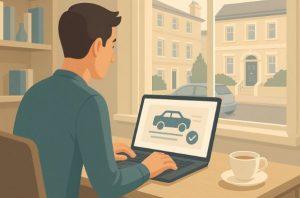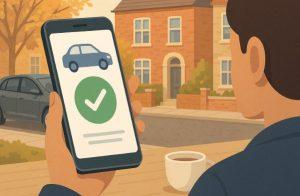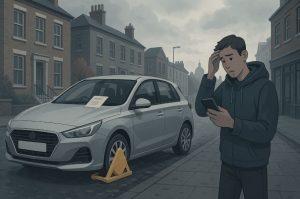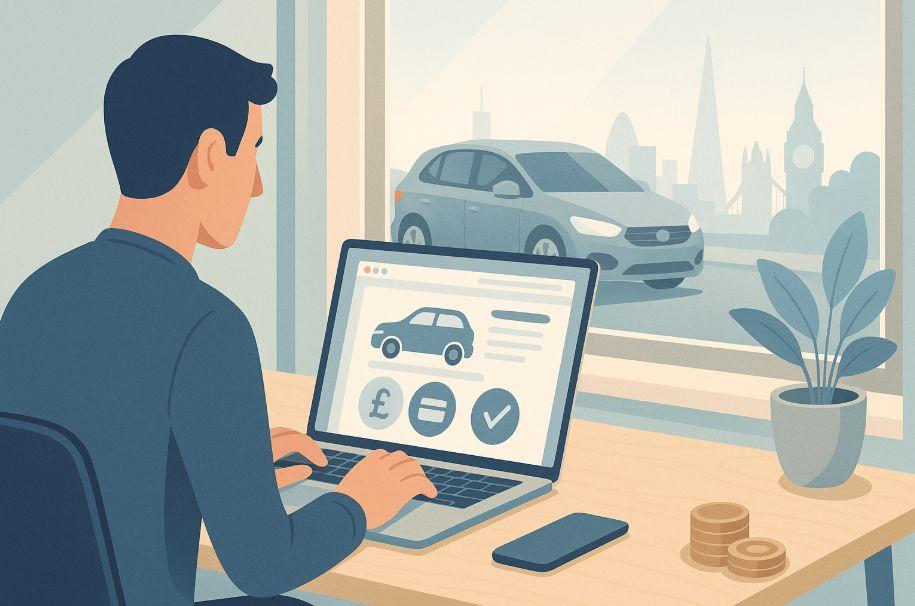As the UK continues to digitise public services, drivers across London and beyond are increasingly choosing to handle vehicle taxation online. Gone are the days of queues at the Post Office or waiting for paperwork to arrive in the mail. The Driver and Vehicle Licensing Agency (DVLA) now provides an efficient, fully online process that makes taxing your car quicker, easier, and more convenient.
But how does the process actually work? What do you need? And what happens if you miss a step? This guide walks through the full journey of taxing your car online from start to finish.
What is the Process of Taxing Your Car Online Through the DVLA?

Taxing your car online starts with visiting the official DVLA website. Once there, you’ll be asked to enter a reference number. This number is found either on your vehicle’s logbook (also known as the V5C), your tax reminder letter (V11), or the new keeper slip (V5C/2) if you’ve recently bought the vehicle.
After entering your reference, the system will automatically pull up your vehicle’s details. You’ll be asked to confirm that your car has a valid MOT certificate and is properly insured both are mandatory in the UK. Once everything is confirmed, you’ll choose how you’d like to pay the tax, either in full or in instalments.
Once the payment is processed, your vehicle is taxed. You won’t need to display a tax disc the system is fully digital, and your vehicle status is updated in real-time across law enforcement and road monitoring systems.
What Documents Do You Need to Tax Your Vehicle Online in the UK?
To complete the process, you’ll need one of three things: your V5C logbook, your V11 tax reminder, or the V5C/2 if you’ve just bought the car. Each of these contains a unique reference number required to access your vehicle’s records on the DVLA system.
Without any of these documents, you won’t be able to proceed online. Instead, you may have to apply for a replacement logbook or visit a Post Office that handles vehicle taxation.
Can You Tax a Car Online Without a Logbook or V5C?
It is possible to tax a car online even if you don’t have the V5C, but only if you have the V11 reminder or the green slip (V5C/2) from the seller. If none of these are available, you’ll need to apply for a new logbook using form V62, which involves a small fee and a waiting period.
Until you receive that new V5C, you won’t be able to tax your vehicle online. This is why it’s essential to keep your documents safe and updated.
How Do You Check if Your Car is Already Taxed?

If you’re unsure about your car’s tax status, checking it is simple. Visit the GOV.UK website and use the vehicle tax checker tool. After entering your registration number, you’ll see whether your car is currently taxed, when it expires, and whether the MOT is still valid.
This tool is especially useful if you’ve recently bought a used car or haven’t received a reminder in the post.
What Are the Payment Options When Taxing Your Car Online?
The DVLA gives drivers the flexibility to choose between different payment plans. You can pay the full annual amount in one go using a debit or credit card. If you prefer to spread the cost, Direct Debit allows you to pay monthly or every six months. There is a small surcharge for paying in instalments, but many drivers find the convenience worthwhile.
Whichever option you choose, the system confirms the payment instantly, and your vehicle is legally taxed without delay.
Is It Possible to Tax a Car That Doesn’t Have Mot or Insurance?
No, the system will not allow you to tax your car unless both your MOT and insurance are current. These requirements are cross-checked with national databases during the online tax process.
If your MOT has expired or your insurance is not showing on the Motor Insurance Database (MID), you’ll need to address these issues before you can proceed with taxation. Trying to tax a vehicle without meeting these criteria is not only futile, but it can also lead to fines or enforcement actions if the car is driven on public roads.
What Should You Do if Your Vehicle is Off-road (SORN)?

If your vehicle isn’t being used or is parked on private land, you are legally required to register it as off-road. This is done through a Statutory Off Road Notification (SORN), which can also be completed online.
Declaring SORN means you’re not required to pay tax, have insurance, or an MOT but the vehicle must not be used or parked on any public roads. If you need to bring the car back into use, you must tax it again before driving it.
How Much Road Tax Do You Need to Pay Based on Car Tax Bands?
The amount you pay in road tax or Vehicle Excise Duty (VED) depends on several factors. These include your vehicle’s CO2 emissions, fuel type, and when it was first registered.
For example, electric vehicles are currently exempt from tax, while petrol and diesel vehicles can fall into higher bands depending on their emissions. Vehicles registered after April 2017 are usually taxed at a flat annual rate, with an additional first-year rate for new vehicles based on their CO2 output.
For an accurate estimate, you can use the vehicle tax calculator on the DVLA website.
How to Handle Car Tax When Buying or Selling a Car?
When purchasing a used vehicle, it’s important to remember that the tax does not carry over to the new owner. You must tax the car in your name immediately, even if the previous tax period is still active.
If you’re selling your vehicle, you must inform the DVLA. Once they’re notified, your existing tax will be automatically cancelled, and you’ll receive a refund for any full unused months. It’s also crucial to ensure the change of ownership is properly recorded to avoid liability for the car’s future use.
What Are the Consequences of Not Taxing Your Vehicle?

Failing to tax your vehicle can have serious legal and financial consequences. The DVLA uses automatic number plate recognition (ANPR) technology to identify untaxed vehicles. If your car is detected, you could face an automatic £80 penalty and that’s just the beginning.
Continued failure to tax your car can result in clamping, towing, or even prosecution, with fines of up to £1,000. These penalties apply whether the vehicle is being driven or simply parked on a public road. It’s your responsibility to ensure that your vehicle is taxed or registered as off-road.
Conclusion
Taxing your car online is not only legal but practical. The DVLA has made the process incredibly accessible for UK drivers, particularly in London where busy lifestyles demand efficient solutions. With the ability to check your car’s status, manage payments, and update ownership all from a smartphone or computer there’s little reason to put it off.
Understanding each step, from checking your documents to selecting a payment method, helps avoid unnecessary stress, fines, or delays. Whether you’re a seasoned motorist or a first-time vehicle owner, this digital approach simplifies one of your key legal responsibilities on the road.
FAQs
How quickly does car tax become active after paying online?
Once your payment is processed online, your car is taxed immediately. You can drive the vehicle without delay.
What if I didn’t receive a V11 tax reminder?
You can still tax your vehicle using your V5C logbook or V5C/2 new keeper slip. A missing V11 doesn’t stop the process.
Can I get a refund if I sell my car?
Yes, the DVLA will automatically refund any full months of unused tax once you report the sale.
Does Direct Debit automatically renew my tax each year?
Yes, unless you cancel it, your Direct Debit will auto-renew annually or monthly, depending on your plan.
What happens if I forget to tax my vehicle?
You may receive an £80 fine, and your car could be clamped or towed. There is no grace period for late payment.
Can leased or company vehicles be taxed online?
Yes, but you may need a reference number from the leasing company or fleet manager.
Are hybrid or electric cars taxed differently?
Electric cars are currently exempt from road tax, while hybrids often benefit from lower tax bands due to reduced emissions.








